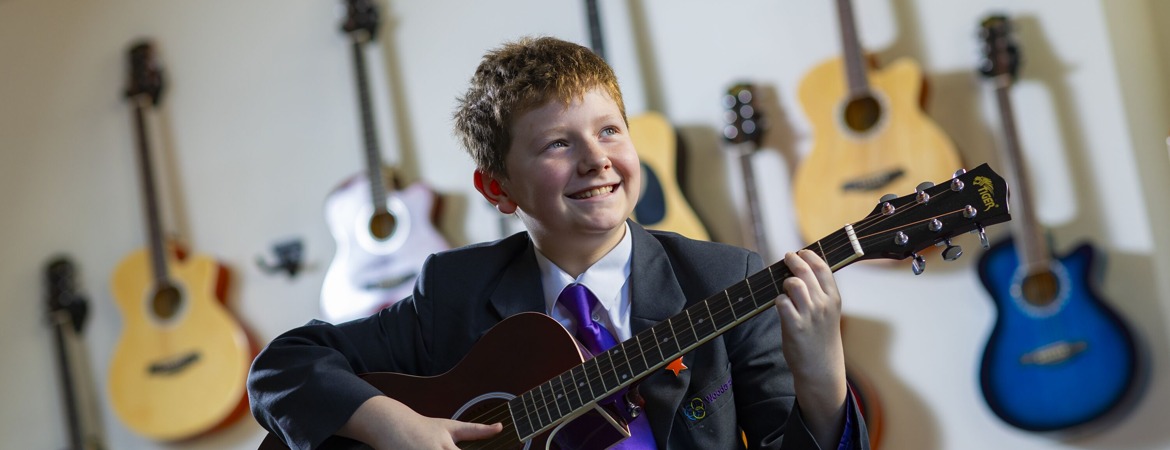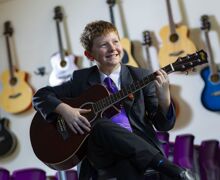Music
Aims and Vision for Curriculum
At St Augustine Academy, our Music curriculum aims to provide all students with a high-quality music education which engages and inspires them to develop a life-long love of music, increases their self-confidence, creativity, and imagination; providing opportunities for self-expression and a sense of personal achievement. Modelled on the National Curriculum, we offer opportunities for students to develop their talents in all aspects of Music including composition, singing and appreciation.
-
Students will develop an ability to listen to, and appreciate a wide variety of music, including different styles, periods and cultures
-
Students will have opportunities to explore and express ideas and feelings about music, in a variety of ways
-
We will encourage active involvement in creating and developing musical ideas using voice and instruments
-
We will nurture a sense of group identity and togetherness through composing, rehearsing and performing music with others to an audience
-
We will help students develop self-discipline and creativity, aesthetic sensitivity and fulfilment through music
-
We will develop students’ awareness and understanding of music from a variety of styles, periods and cultures
-
We will enable all students to access to and develop an enjoyment of music which will sustain through their lives
Developing Our Learners
-
Perform, listen to, review and evaluate music across a range of different periods, genres, styles and traditions, including the work of the great composers and musicians
-
Learn to sing and use the voice, to create and compose music on their own and collaboratively, to learn a musical instrument, use technology appropriately and to have the opportunity to progress to the next level of musical excellence
-
Understand and explore how music is created, produced and communicated through the inter-related dimensions: pitch, duration, dynamics, tempo, timbre, texture, structure and musical notation.
Structure And Sequence
-
Quality First Curriculum and Teaching, using consistent structures, enables all learners to make good progress
-
One person department – allows for a consistent style of teaching
-
Support through the Trust with regular WAT meetings
-
Focus on literacy and vocabulary in every scheme of work
-
Challenging tasks to push more able students
-
Development of many transferrable skills including; communication, confidence, teamwork and leadership, listening and responding, creativity, time management, research, critical thinking and problem-solving
-
Extra-curricular opportunities to develop skills – with one whole school performance, and two more variety performances which allow for students own creativity
-
Offer of external peripatetic music teachers who deliver one-to-one Instrumental lessons.
Students demonstrate their ability in music in a variety of different ways. The teacher will assess students’ work in music by undertaking both formal and informal assessments during lessons. The teacher will assess a piece of work giving oral or written feedback as necessary to inform future progress.
Destinations And The World Of Work
Music is a unique way of communicating that can inspire and motivate students. It is a vehicle for individual expression, and it can play an important role in the personal development of all. Music can reflect the culture and society that we live in or come from, and the teaching and learning of music enables students to learn more about the world we live in. Music can play an important role in helping students feel part of a community. We provide opportunities for all to create, play, perform and enjoy music; to develop the skills to appreciate a wide variety of musical forms, and to develop the confidence to make informed judgements about music – these are transferrable skills which can prepare any to throw themselves into the real-life world of work with tolerance and a better understand of community and compassion.
| Subject Documents |
|---|
| Curriculum map Music All Years |
| Music Development Plan |




